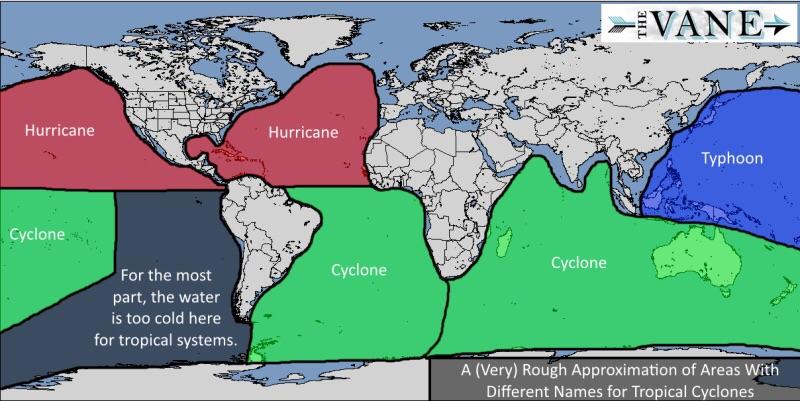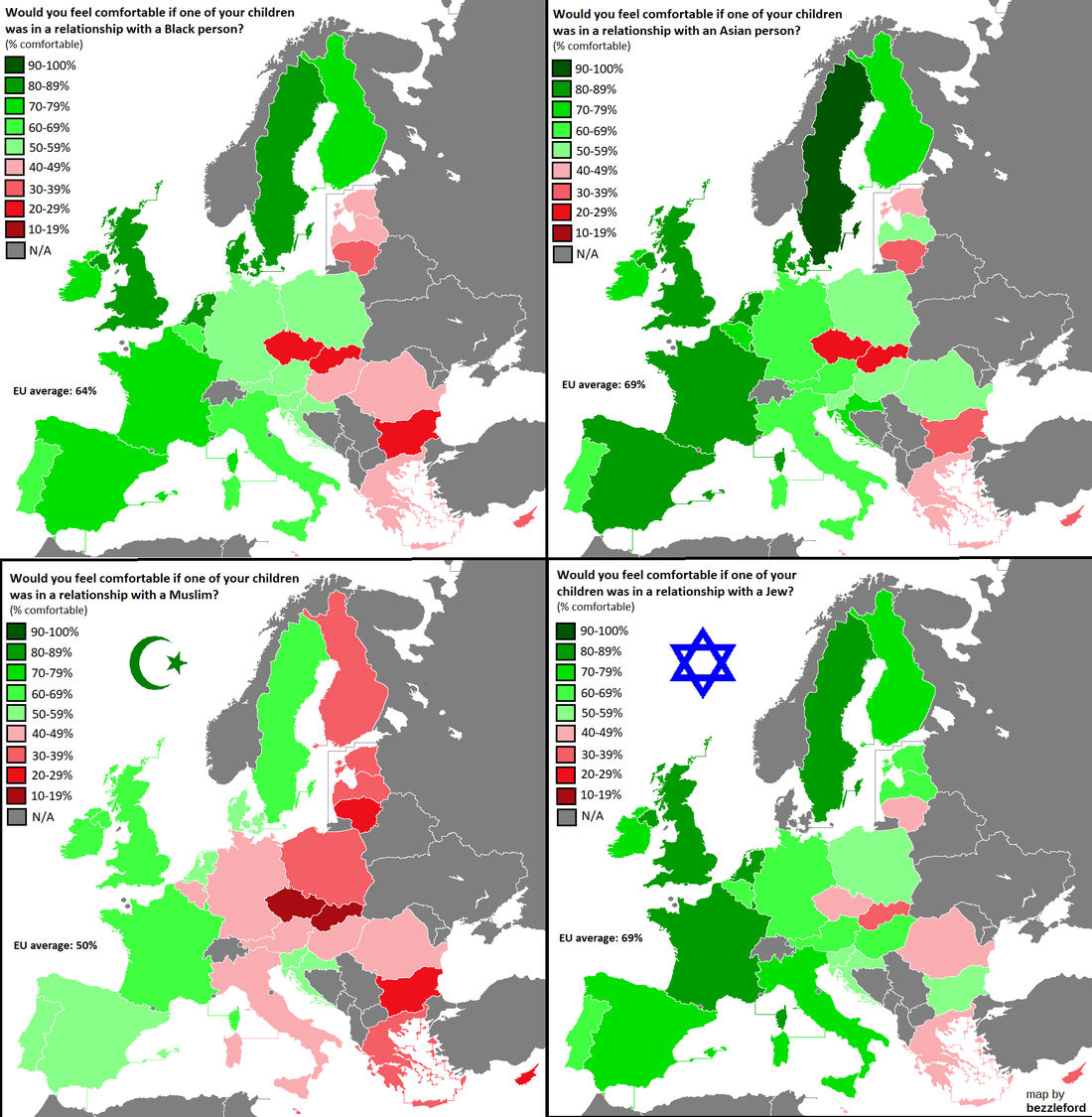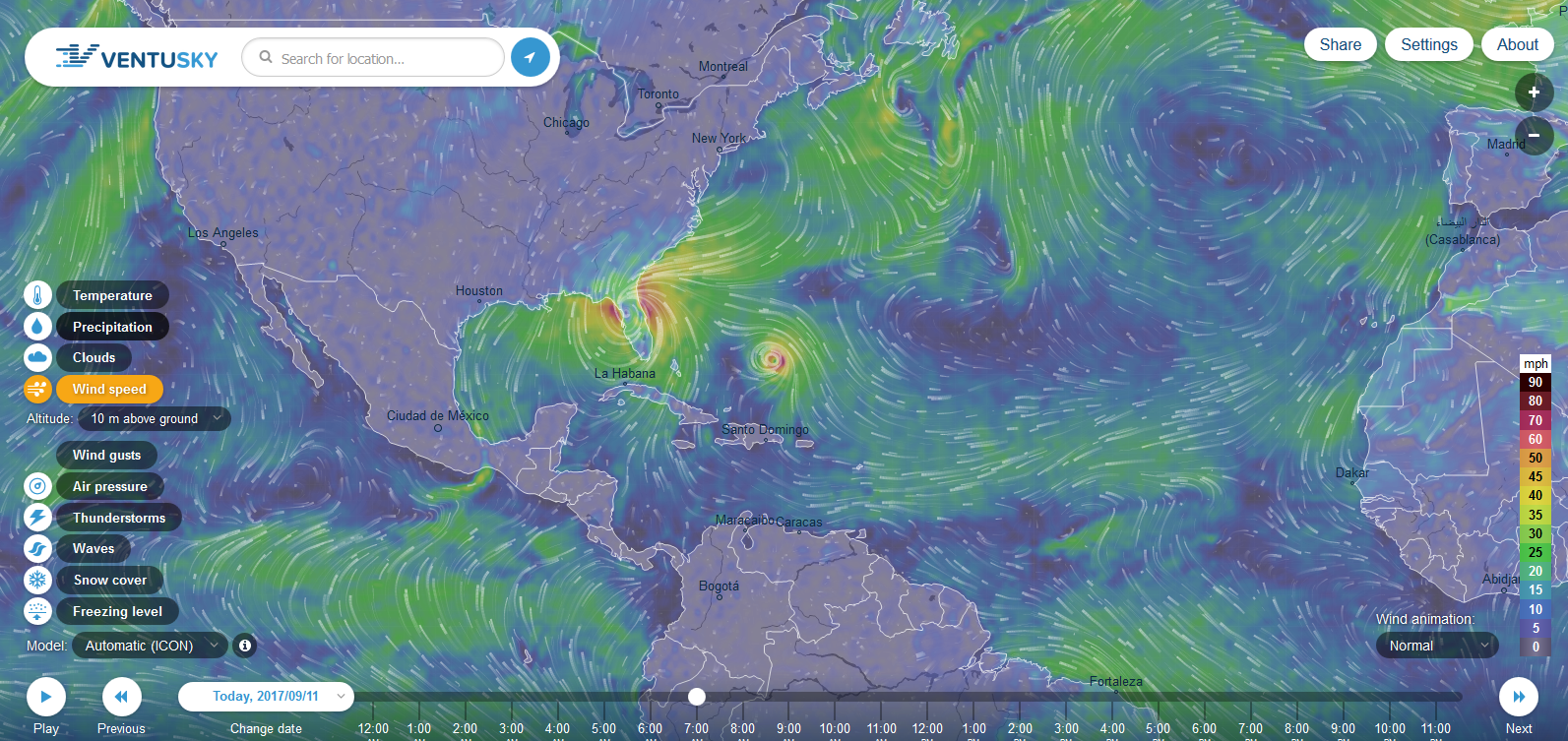|
Cartograms are maps weighted for a specific variable. In this case, the cartogram is weighted to reflect the number of health care workers in a given country, adjusted for differences in baseline population. geographical.co.uk/images/articles/places/mapping/2017/Healthcare_workers/health-workers.jpg (Side note: before the outbreak of Ebola in 2014-15, the country of Liberia, with a population of more than 4.5 million, had a total of 50 doctors.)
0 Comments
Add a little logic to your day with the Circuit Scramble app. The app is designed to teach about basic circuits -- players need to flip the right switches to get the current to flow -- but the logic gates make it an excellent way to practice your logic-puzzle solving too. More points are awarded for making the fewest moves. Free on Android, not yet released for iOS. play.google.com/store/apps/details?id=com.Suborbital.CircuitScramble
What do you call a swirling high-energy tropical storm with powerful winds and rain? The answer depends on where you are. This map shows where you might find hurricanes vs. cyclones vs. typhoons. (Side note: the Atlantic hurricane season continues until the end of November.) brilliantmaps.com/hurricane-cyclone-typhoon/
This briefing from The Economist (UK) examines the modern history and current manifestations of political Islam in democracies ranging from Indonesia and Turkey to Tunisia and Egypt. www.economist.com/news/briefing/21727061-auguries-are-mixed-can-political-islam-make-it-modern-world
By most accounts Mexico City is the most populous metropolitan center in North America (edging out the NYC metro area). However, Mexico City sits on a patchwork of volcanic soil and mud from an ancient lake, causing streets, buildings, and water pipes to shift and crack as infrastructure settles unevenly and exacerbating effects of the region's recurring seismic events, like last week's major earthquake. But last week's earthquake was anomalous, and this article explains why: www.newyorker.com/tech/elements/the-strange-tectonic-coincidence-of-mexicos-september-earthquakes
In a single year, the number of homicides in Brazil (red) exceeded the number of homicides in all of the blue countries put together. i.redd.it/ybv1ot6x0xdy.jpg
This month's Oxford University Press philosopher of the month is Mary Wollstonecraft. Wollstonecraft was a prominent British feminist, witness to the French Revolution, and political/moral philosopher of the late 1700s. (She is also remembered as the mother of Mary Shelley, the author of Frankenstein, which the students in my online comparative science fiction class just read.) To read more about Wollstonecraft's life and work, see blog.oup.com/2017/09/mary-wollstonecraft-infographic-philosophy
This interactive mapping site looks at child care availability in the U.S. by comparing the number of children under age 5 in any Census tract to the number of spots available with licensed child care providers. Mouse over the map at the site for state-level information and click on any state for county-level detail. childcaredeserts.org/
Take advantage of "Smithsonian Science How" resources by registering your students to participate in a webcast or text chat with a Smithsonian scientist or by choosing among Smithsonian-curated teaching resources by topic. Next up: archaeologist Bill Fitzhugh on Oct. 12. qrius.si.edu/explore-science/webcast
Land use is a volatile issue in Kenya (as seen in the country's recent and now invalidated election) and across Africa. The continent's degrading soil conditions and mushrooming populations -- from 230 million in 1950 to 630 million in 1990 to more than 1.2 billion today and possibly 4 billion by the end of the century -- are on a collision course. This map, from The New York Times, shows where the problems are particularly acute. To read the NYT story, see www.nytimes.com/2017/07/29/world/africa/africa-climate-change-kenya-land-disputes.html
As my geography students learn, for the first time in human history more than half the world's people now live in cities, a proportion that is expected to increase to 70% by 2050. As nation-states struggle to govern, will city-states stage a comeback? This article looks at the issues posed by changing flows of money, people, and information.
"This is the crux of the problem: nation-states rely on control. If they can’t control information, crime, businesses, borders or the money supply, then they will cease to deliver what citizens demand of them. ... The trends that are pinching the nation-state are helping the city-state. In a highly connected, quasi-borderless world, cities are centres of commerce, growth, innovation, technology and finance. ... As today’s centres of urban global capitalism, major cities are more similar to each other than the provinces of their own nation-states. ... [Nation-states] evolved during a time of industrialisation, centralised ‘command and control’ bureaucracies and national loyalty. Modern technology tends in the opposite direction: it’s distributed, decentralised and uncontrollable. If our political arrangements are a mirror of the modes of production and assumptions of the time, the future doesn’t look rosy for this 19th-century relic." aeon.co/essays/the-end-of-a-world-of-nation-states-may-be-upon-us Weather patterns are usually in the purview of physical geography, but increasingly they are affected by human geography as well. A recent study of sea lightning, for example, found that lightning was twice as likely to strike major shipping lanes as nearby waters. Scientists believe cargo ships, which burn a particular sludgy form of oil, are creating trails of exhaust particles which contribute to cloud formation and lightning. www.sciencemag.org/news/2017/09/cargo-ships-may-be-creating-lightning-sea
Over last month's eclipse? Want to do it again? This interactive mapping tool charts the paths of the next 15 solar eclipses, from now until 2040. www.sciencenews.org/article/future-total-solar-eclipses
What is knowledge? What is required to understand? This TED Talk considers the artificial intelligence robot that passed the highly selective University of Tokyo entrance exam -- including the 600-word essay portion -- without understanding a thing. (But will the difference between understanding and not understanding be enough to ensure employment in the future?) www.ted.com/talks/noriko_arai_can_a_robot_pass_a_university_entrance_exam
This week the European Court of Justice ruled against Slovakia and Hungary for refusing to accept an EU-designated number of refugees (an agreement hammered out to take pressure off Italy and Greece, where most refugees first set foot on EU soil). These maps, based on 2015 data, reflect how comfortable survey participants across the European Union would be if their child was in a relationship with one of four different minorities. In general, Slovakian and Czech respondents would be most uncomfortable if their child was in a relationship with any of the minorities mentioned and Swedes and Brits would be most accepting. Almost uniformly, EU residents were most uncomfortable with their child being in a relationship with a Muslim. brilliantmaps.com/europe-relationships/
Want to spend a summer or a school year studying a critical language and living in another country for free?! The NSLI-Y program, funded by the U.S. State Department, provides full scholarships for American high school students who want to study Arabic, Chinese (Mandarin), Hindi, Bahasa Indonesian (new!), Korean, Persian (Tajiki), Russian, or Turkish in countries where those languages are spoken. Applications for Summer 2018 and the 2018-19 school year are due by Nov. 2, and the selection process is competitive. www.nsliforyouth.org/
Scientists and social scientists across several disciplines teamed up to look at how changes in climate are likely to affect the U.S. economy. "Researchers ran 29,000 simulations of the U.S. economy, with results informed by weather-driven damages they detected in six domains–agriculture, crime, health, energy demand, labor, and coastal communities—between 1981 and 2010. Heat, for example, may increase crime or cause corn yields to fall, but it also could lower fatalities driven by exposure to the cold." The resulting map projects economic losses (red) and economic gains (blue) by county for 2080-2100. [Note: this work was published long before the current hurricane season.] www.sciencemag.org/news/2017/06/here-s-how-much-climate-change-going-cost-your-county
One of the many things students in my "Mission Possible: Global Issues, Leadership Choices" class have to take into account during the simulation is "soft power" or the power they can exert simply because other players like, admire, or respect them. Since 2002, the Pew Research Center has been conducting surveys assessing soft power and asking people around the world how much confidence they have that a given leader of a foreign country will "do the right thing regarding world affairs." This graphic from The Economist (UK) summarizes the results of a Pew survey conducted this spring and compares it to the results of a similar survey conducted during Barack Obama's second term. www.economist.com/blogs/graphicdetail/2017/06/daily-chart-19 (For the full report on which this graphic is based, see www.pewresearch.org/fact-tank/2017/06/26/around-the-world-favorability-of-u-s-and-confidence-in-its-president-decline/ and click on the link to the PDF.)
The constraints of physical geography have shaped how humans have solved problems of food, shelter, and energy. This image is not a giant beehive. It is a kind of refrigerator/freezer dating back to 400 BC. Developed by the Persians, yakhchals had thick clay walls and a shape that brought in cool air at floor level while venting warmer air out the top. (Interestingly, the same basic engineering principles are now being used to create solar updraft towers: using that warm venting air to turn a turbine.) www.atlasobscura.com/places/yakhchals
I have written about Ventusky before, but it's worth repeating because the site is such a useful tool to see the characteristics of a hurricane in real time. This particular view shows wind speeds: www.ventusky.com/?p=23.9;-68.4;3&l=wind
Discerning "truth" and "reality" have long been a central interest of philosophers. This article from New Philosopher (Australia) provides an interesting look at the contemporary nexus between truth, lying, bullsh*tting (in the words of Princeton philosopher Henry Frankfurt), and technology. Here are two brief excerpts:
'For Frankfurt, a bullshitter “is neither on the side of the true nor on the side of the false… He does not care whether the things he says describe reality correctly. He just picks them out, or makes them up, to suit his purpose”. These words, first published in 2005, capture something central to the phenomenon that has come to be called fake news: the belief that emotive impact is not only the supreme test of a story, but the only metric that matters. ... The world according to the bullshitter is whatever he wishes it to be. ‘Fake news’ is whatever people he disagrees with are saying. There’s a purity to this that is almost Platonic.' 'New stories -- fake and otherwise -- exist in constant, ferocious competition for belief and engagement. In our age of information suffusion, their supply is plentiful while the attention upon which they thrive is scarce. The result: an evolutionary hothouse in which the fittest ["news" depends on clicks and eyeballs]. ... We aren’t being manipulated by master persuaders. Rather, we’re choking on mindless memes that will keep on coming – and passing their best tricks on to others – for as long as conditions remain hospitable to bullshit. ... Another philosopher with a fine eye for nonsense, Daniel Dennett, has written at length about the significance of evolutionary pressures in the cultural context. “Once the infrastructure for culture has been designed and installed,” he argues in his recent book, From Bacteria to Bach and Back, “the possibility of parasitical memes exploiting that infrastructure is more or less guaranteed.” Once you have built it, they will come: the freeloading lies, earworms, rumours, conspiracies, and panics.' www.newphilosopher.com/articles/fake-news/ It seemed appropriate to do a map of the Caribbean today. The islands of the Caribbean are technically those that form an arc separating the Caribbean Sea from the Atlantic Ocean and the Gulf of Mexico. (The Bahamas and the Turks and Caicos are a separate island archipelago considered outside the Caribbean.) The smaller islands on the eastern and southern edge of the Caribbean arc are sometimes referred to as the Lesser Antilles -- in which case the larger islands on the northern edge of the arc, including Cuba, are the Greater Antilles. To further complicate things, the Lesser Antilles are occasionally divided into the Windward Islands (from Dominica south) and the Leeward Islands (from Guadeloupe north). Despite their name, which suggests they are out of the wind, the Leeward Islands took a direct hit from Hurricane Irma, which then proceeded through the Greater Antilles. ontheworldmap.com/north-america/political-map-of-caribbean.jpg
The Baltimore Under Ground Science Space (BUGSS) is offering a five-week "molecular biotechnology bootcamp" for home schoolers beginning in mid-October. For more information about what looks to be an outstanding lab science opportunity or to register, see www.eventbrite.com/e/molecular-biotechnology-bootcamp-for-homeschool-students-what-does-the-bacteria-say-tickets-36734970285?mc_eid=a9df341d1b&mc_cid=3d833f1d33
States all get their tax revenue from somewhere, but the blend of income tax, sales tax, property tax, and corporate tax varies considerably from state to state. This geo-graphic compares state revenue sources to each other and to the national average. howmuch.net/articles/americas-tax-collection
Access to water (for drinking, for irrigation, for hydroelectric power) is likely to intensify as a source of conflict in the future, not only between countries but also between states and between urban and rural areas. This site considers the impact of leadership choices on a handful of water conflicts, past, present, and possible future. news.nationalgeographic.com/2017/08/maps-atlas-water-conflict-syria-isis
|
Blog sharing news about geography, philosophy, world affairs, and outside-the-box learning
Archives
December 2023
Categories
All
|



 RSS Feed
RSS Feed